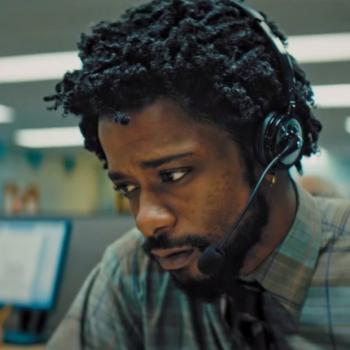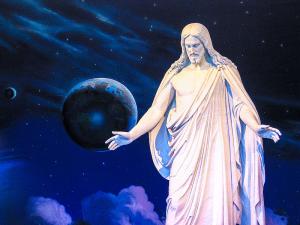Last week, I logged onto facebook to see my newsfeed crowded with excited links from various Mormon friends to hip hop pioneer LL Cool J’s twitter feed. Confused, I clicked over to discover that the man best known for the early 1990s hits “I Need Love” and “Mama Said Knock You Out” had tweeted to his 3.8 million followers the following:
Without hard work, nothing grows but weeds.
Gordon B. Hinckley— LLCOOLJ (@llcoolj) August 6, 2013
That quote comes from a 1994 farewell address to recently-deceased church president Ezra Taft Benson from his longtime confidant and counselor Gordon B. Hinckley, and was published in the Church’s monthly magazine The Ensign.
This was not the first time something of this sort occurred. In December 2011, fellow hip hop artist, entertainment mogul, and celebrity entrepreneur Diddy tweeted a quote from Mormon apostle L. Tom Perry:
https://twitter.com/iamdiddy/status/149670615685677056
It is doubtful that either Mr. Cool J or Mr. Combs was aware of who exactly they were quoting, and almost certainly neither was familiar with the original context of the quotes (for those interested, Perry’s comment was delivered as part of a devotional at Brigham Young University in 1974 that was, until recently, included in the Young Women’s Manual). For Mormons that didn’t matter, though; this was reason for celebrating amongst ourselves and sharing with our friends.
Part of that celebration was surely tongue-in-cheek. There is, after all, a striking contrast between the tweeters and those they are quoting. The former are successful African American celebrities and veritable rockstars instantly recognizable to almost anyone in America today; the latter are (or were) octo- and nonagenarian leaders of one of America’s most conservative churches. But beyond the obvious humor embedded within that contrast, I wonder what this says about Mormonism’s place within American culture today and the role that technology and mass media play in shaping and sharing its message to the world.
While Mormons might smile to themselves while retweeting their newest favorite prophet-quoting celebrity, they might also do well to reflect on the ways in which 140-character soundbites inevitably decontextualize the quote and erase its meaning of anything recognizably and distinctly Mormon. Is this a sign of declension in Mormonism’s prophetic culture—albeit one beyond the Church’s control—and is there anything that can be done to stop it? Or is this something to be embraced, that the words of LDS Church leaders—no matter how decontextualized and secular-sounding—now resonate beyond ecclesiastical borders and into the cultural and celebrity mainstream?











